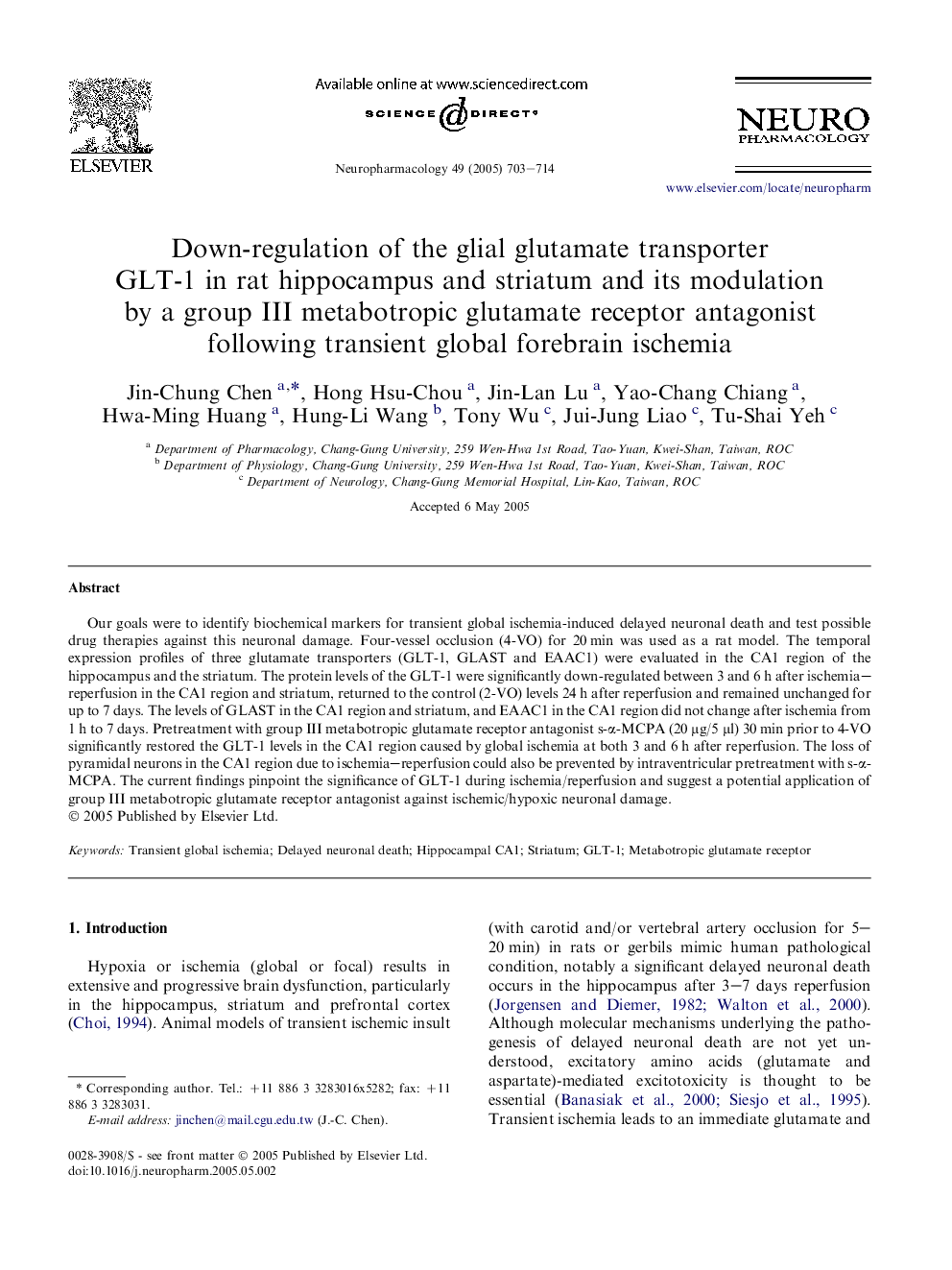| Article ID | Journal | Published Year | Pages | File Type |
|---|---|---|---|---|
| 8998210 | Neuropharmacology | 2005 | 12 Pages |
Abstract
Our goals were to identify biochemical markers for transient global ischemia-induced delayed neuronal death and test possible drug therapies against this neuronal damage. Four-vessel occlusion (4-VO) for 20 min was used as a rat model. The temporal expression profiles of three glutamate transporters (GLT-1, GLAST and EAAC1) were evaluated in the CA1 region of the hippocampus and the striatum. The protein levels of the GLT-1 were significantly down-regulated between 3 and 6 h after ischemia-reperfusion in the CA1 region and striatum, returned to the control (2-VO) levels 24 h after reperfusion and remained unchanged for up to 7 days. The levels of GLAST in the CA1 region and striatum, and EAAC1 in the CA1 region did not change after ischemia from 1 h to 7 days. Pretreatment with group III metabotropic glutamate receptor antagonist s-α-MCPA (20 μg/5 μl) 30 min prior to 4-VO significantly restored the GLT-1 levels in the CA1 region caused by global ischemia at both 3 and 6 h after reperfusion. The loss of pyramidal neurons in the CA1 region due to ischemia-reperfusion could also be prevented by intraventricular pretreatment with s-α-MCPA. The current findings pinpoint the significance of GLT-1 during ischemia/reperfusion and suggest a potential application of group III metabotropic glutamate receptor antagonist against ischemic/hypoxic neuronal damage.
Keywords
Related Topics
Life Sciences
Neuroscience
Behavioral Neuroscience
Authors
Jin-Chung Chen, Hong Hsu-Chou, Jin-Lan Lu, Yao-Chang Chiang, Hwa-Ming Huang, Hung-Li Wang, Tony Wu, Jui-Jung Liao, Tu-Shai Yeh,
